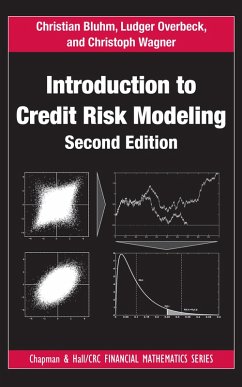While continuing to focus on common mathematical approaches to model credit portfolios, this second edition presents updates on model developments that have occurred since the publication of the best-selling first edition. It contains a new section on multi-period models and discusses recent developments in structured credit. Along with many worked out examples and numerical results, this edition also includes an expanded section on techniques for the generation of loss distributions as well as discussions of new topics, such as spectral risk measures, an axiomatic approach to capital allocation, and nonhomogeneous Markov chains.
Dieser Download kann aus rechtlichen Gründen nur mit Rechnungsadresse in A, B, BG, CY, CZ, D, DK, EW, E, FIN, F, GR, HR, H, IRL, I, LT, L, LR, M, NL, PL, P, R, S, SLO, SK ausgeliefert werden.

